
Politics
23:36, 07-Feb-2017
Wang Yi: China, Australia must fight protectionism together
Updated
10:42, 28-Jun-2018
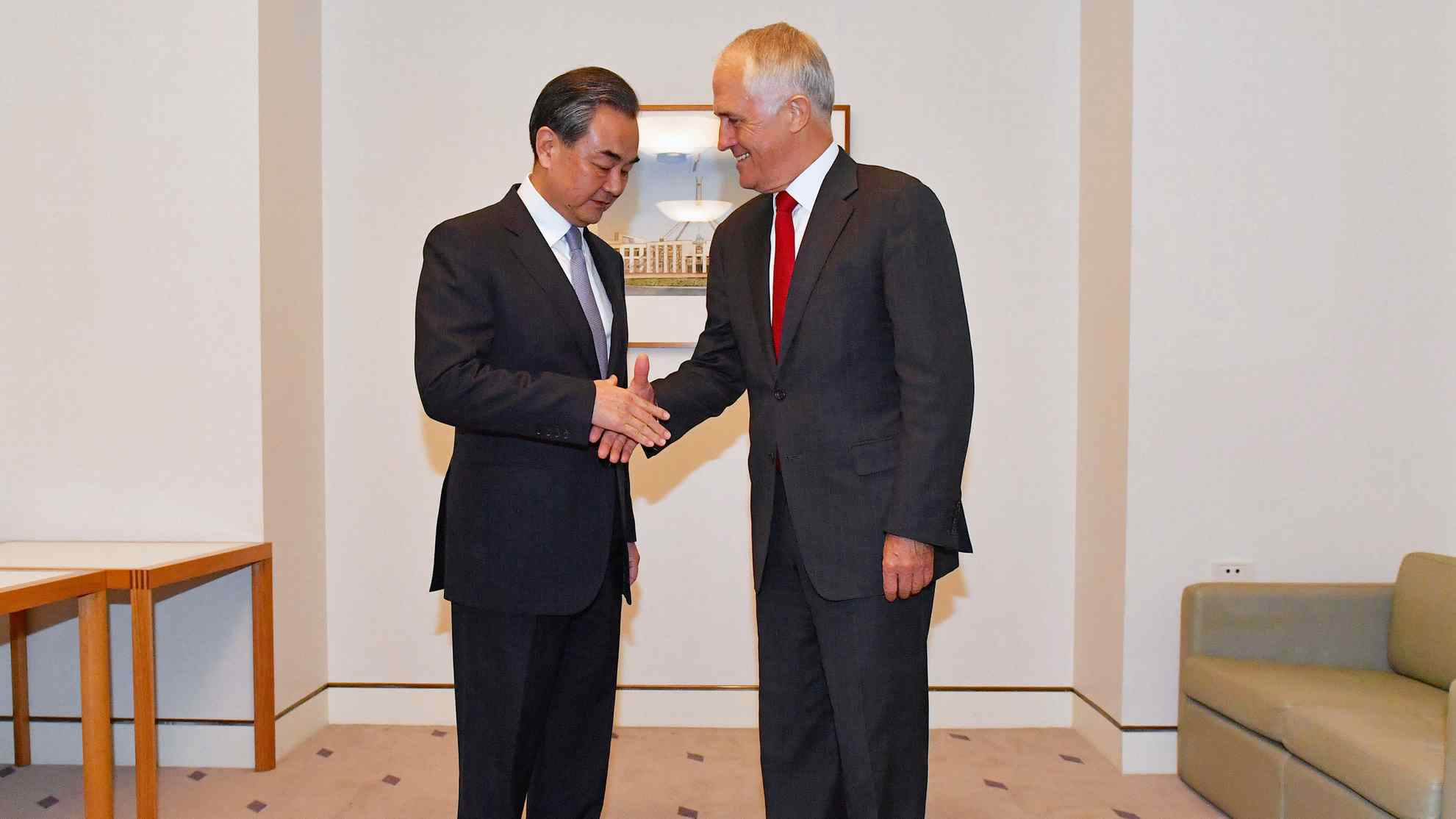
Chinese Foreign Minister Wang Yi said on Tuesday that China and Australia are willing to work together to promote economic growth and security.
Wang made the remarks when meeting with Australia's Prime Minister Malcolm Turnbull in Canberra. Wang started a two-day visit to Australia on Tuesday.
During the meeting with Turnbull, Wang said that he had a “very good” conversation with his Australian counterpart, Julie Bishop, when they co-hosted the fourth China-Australia Foreign and Strategic Dialogue.
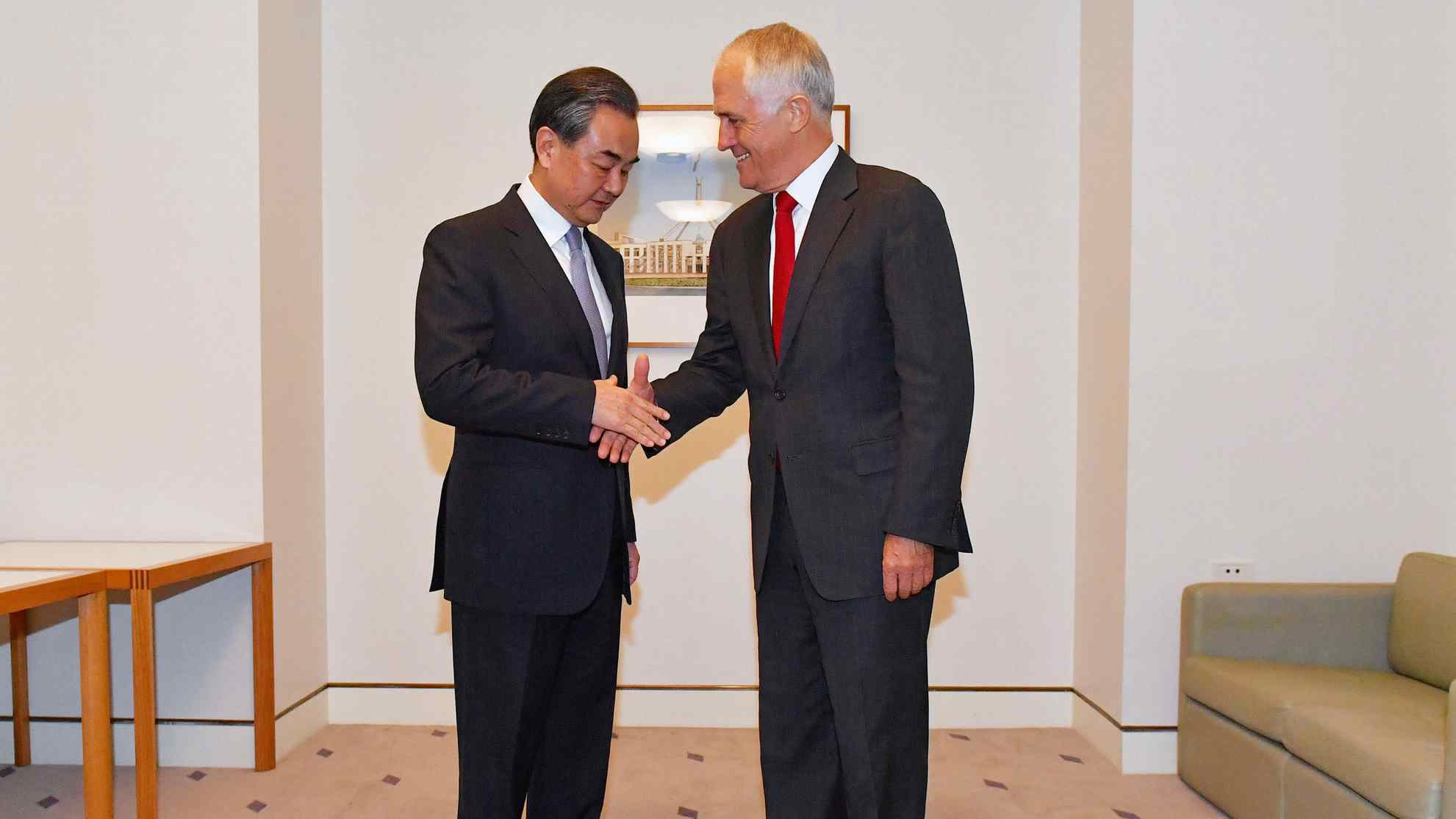
Australia's Prime Minister Malcolm Turnbull shakes hands with China's Foreign Minister Wang Yi before the start of their meeting in Parliament House, Canberra, Australia on February 7, 2017. /CFP Photo
Australia's Prime Minister Malcolm Turnbull shakes hands with China's Foreign Minister Wang Yi before the start of their meeting in Parliament House, Canberra, Australia on February 7, 2017. /CFP Photo
“We’ve reached consensus that as two major and responsible countries, China and Australia should work together to build an open world economy, protect the international trade system, and fight against trade protectionism,” said Wang.
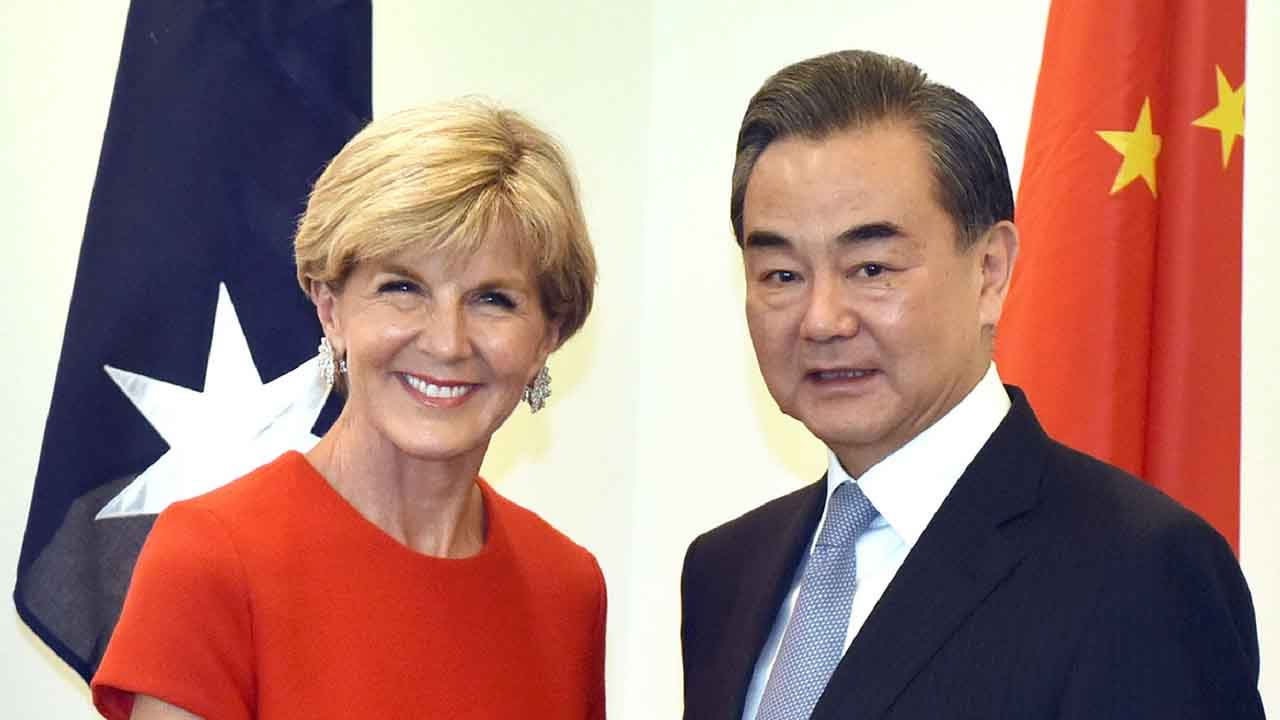
China and Australia established a comprehensive strategic partnership in 2014 and Wang said that China is willing to work together with Australia to promote the bilateral relationship to a new level.
Prime Minister Turnbull said Australia is the beneficiary of free trade and that fighting against trade protectionism benefits China, Australia and the wider world. He also expressed hopes of further promoting Sino-Australia bilateral ties.
China-US ties
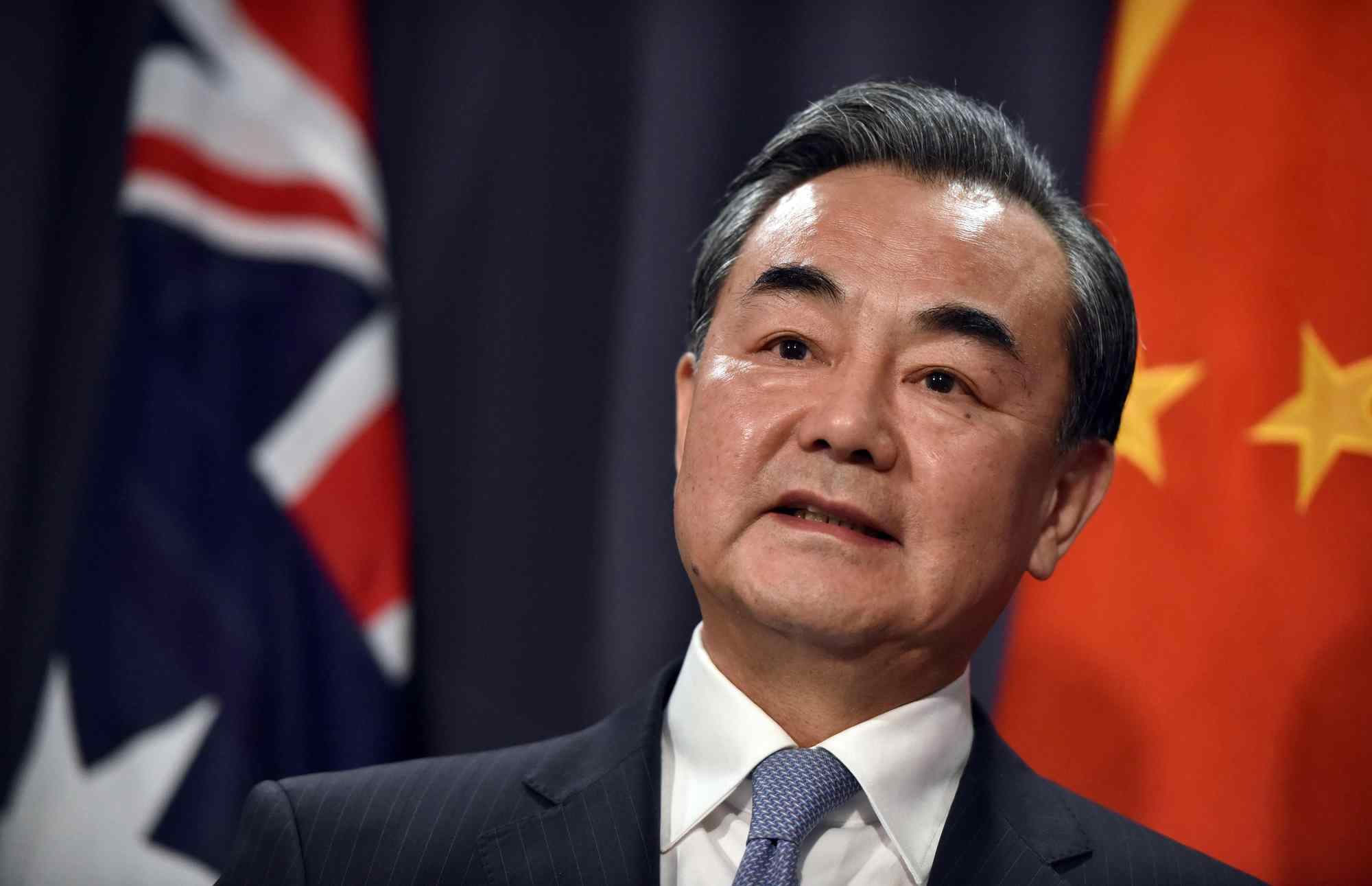
Chinese Foreign Minister Wang Yi speaks during a press conference with Australian Foreign Minister Julie Bishop at Parliament House in Canberra on February 7, 2017. /CFP Photo
Chinese Foreign Minister Wang Yi speaks during a press conference with Australian Foreign Minister Julie Bishop at Parliament House in Canberra on February 7, 2017. /CFP Photo
At a news conference held after the fourth China-Australia Foreign and Strategic Dialogue, Wang said Sino-US relations have passed the running-in period and are on a better path of development.
“The Sino-US relationship has overcome various difficulties and kept developing over the past four decades. In 2016, bilateral trade volume reached over 500 billion US dollars. Almost every state in the US has business with China,” he said.
“If conflicts happen between China and the US, both sides will suffer,” the foreign minister added.
Wang also said that after winning the election, US President Donald Trump had a positive telephone conversation with Chinese President Xi Jinping and both sides agreed the importance of developing relations between both countries.
China’s role on the world stage
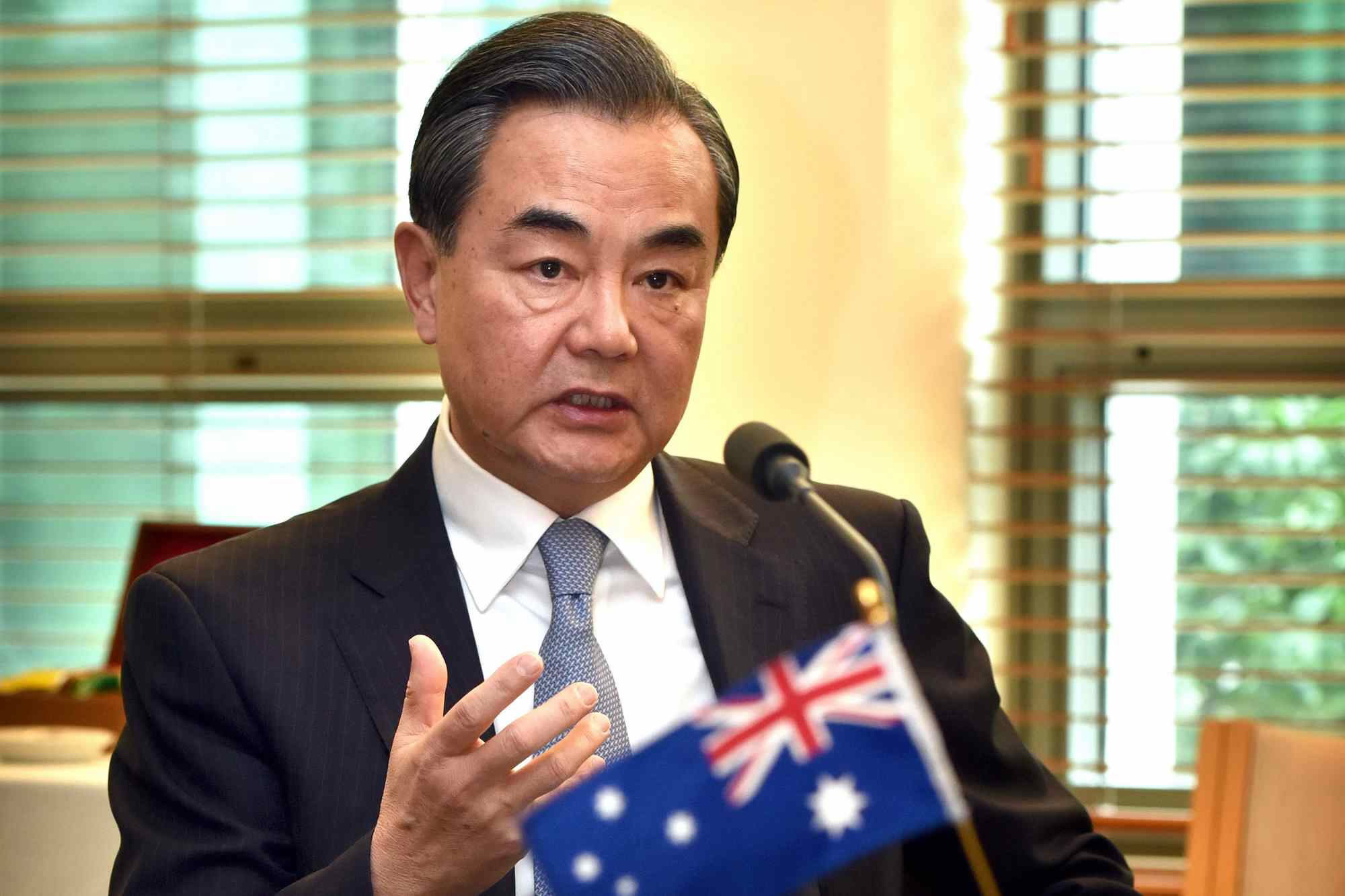
China's Foreign Minister Wang Yi speaks to his Australian counterpart Julie Bishop during the Australia-China Foreign and Strategic Dialogue at Parliament House in Canberra on February 7, 2017. /CFP Photo
China's Foreign Minister Wang Yi speaks to his Australian counterpart Julie Bishop during the Australia-China Foreign and Strategic Dialogue at Parliament House in Canberra on February 7, 2017. /CFP Photo
Wang said it is a major international and historical responsibility for China to build a modernized country for its 1.3 billion population.
"We believe that the global affairs should be addressed by all countries in the world and the international rules should also be jointly formulated by all countries," Wang told a press conference after the fourth round of the China-Australia diplomatic and strategic dialogue.
As the world's second largest economy, China is willing to give an impetus to global economic growth. As a permanent member of the UN Security Council, China is ready to shoulder its due responsibility of maintaining world peace and security, he added.
In terms of promoting the world economy, Wang said that China welcomes all kinds of mechanisms that promote free trade and globalization. He stated that either the Trans-Pacific Partnership Agreement, the Regional Comprehensive Economic Partnership or other regional mechanisms are all possible ways to promote the establishment of a free trade area in the Asia-Pacific.
9030km

SITEMAP
Copyright © 2018 CGTN. Beijing ICP prepared NO.16065310-3
Copyright © 2018 CGTN. Beijing ICP prepared NO.16065310-3